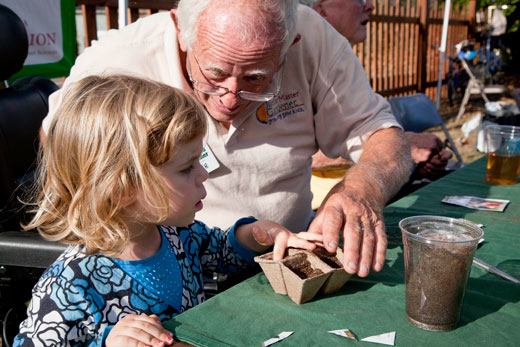The garden adjacent to Centenary United Methodist Church in Macon, Georgia, isn't exactly paradise. It's more like an empty lot that has a few picnic tables and a half dozen raised beds growing bulbous purple eggplant, lush leafy lettuces, and fancy onions.
But four Candler alumni are doing whatever is humanly possible to transform the space and the surrounding neighborhood into a modern-day Eden.
"All I know is that God is good, and these people are good," says Paul Jones, who lives behind the garden in a transitional house run by Centenary staff. "They've given me a roof over my head, food to eat, and kept me out of trouble."
Jones is part of a wide spectrum of residents who live in Centenary's neighborhood, which once was a thriving, middle-class community with quaint turn-of-the-century homes, safe parks, and prosperous businesses. In the 1960s, the community lost its innocence when a new section of Interstate 75 snaked its way toward Macon and split it in two.
The Rev. Tim Bagwell 78T, Centenary's volunteer senior pastor, said that by 2005 the neighborhood had become the most dangerous part of town and church membership had dwindled to 30 because people were too afraid to attend services.
"We faced a hard decision: either close our doors or keep them open and try to revitalize the community. We decided to stay and go in a different direction theologically by focusing on advocacy," he says.
Bagwell, whose full-time job is director of New and Revitalized Congregational Development for the South Georgia Conference of The United Methodist Church, has approached the church's theology of advocacy with a two-part strategy: build relationships within the community and work within the system to bring about change.

